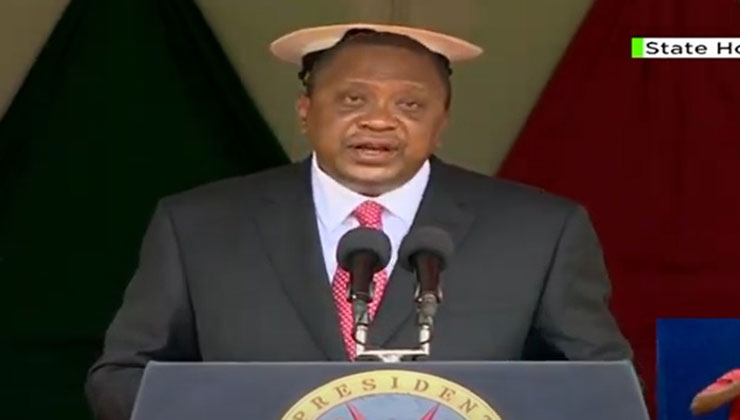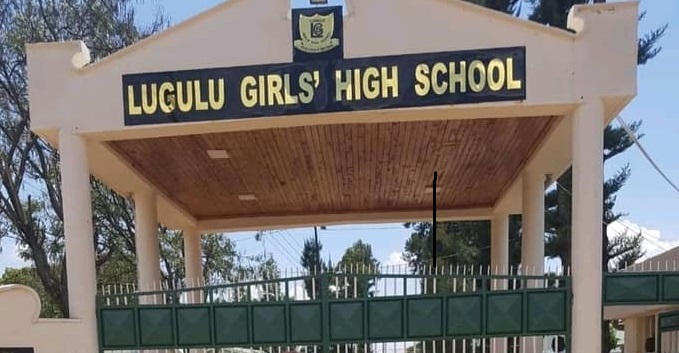President Uhuru Kenyatta: Today our founding fathers achieved the right for Kenyans to self-govern. We are emboldened to know that they fight victoriously against a mighty nation and this reminds us that as we fight Covid-19 that we shall overcome. They instructed us to be at our very best at the darkest of moments. They told us that rock bottom is actually a foundation you can build on. It is indeed a dark moment, the founders of our nation required us to be at our best at moments like this. They themselves practiced it as they fought to give us self-rule.
President Kenyatta: The making of a nation is the work of many small events and transitions, many small failures and successes. Having been involved in the Lancaster Constitution-making process, Mboya cautioned that a Constitution cannot be good to the nation if it is an end to itself. He cautioned that a Constitution can be a means to an end.
President Kenyatta: Mzee Kenyatta imagined a free Kenya as far back as 1930. His dream is contained in his book published in 1938, Facing Mt Kenya. He warned us that we should focus on not on what has been done but what remains to be done. The right mindset is therefore a critical plank in making a dream come true.
President Kenyatta: We have achieved the dreams our founding fathers captured in the Sessional Paper Number 5. We have made progress under the Vision 2030, a vision that comes to an end in nine years. Kenya needs a new vision. Indeed, the Bible tells us that in the 50th year, all debts were cancelled and lands left untilled.
President Kenyatta: Allow me to give you examples of unfinished business started by our forefathers: Infrastructure, this means roads and ports. For all endeavours, our colonizers managed to pave only 23,000km tarmacked roads per year. Our forefathers built 10 times more tarmacked roads than our colonisers. My administration has built much more than our founding fathers and colonizers and more roads still need to be built.
President Kenyatta: Turning to railways, this is where my biggest critiques reside. They are not alone, there were others who called the colonizers railway the Lunatic Express. That was a critique of our city, Nairobi. It is common for a railway to create a country. I am also reviving the Nairobi-Nanyuki railway which traverses six counties. We are also reviving the railway to Malaba, as part of a bigger strategy to link the hinterland. When this happens, Kenyans can expect new markets to emerge along these railway lines and for cities to flourish.
President Kenyatta: We have secured the highest position in the continent at the home of the highest transition of primary to secondary school students. We have realised that a better part of learning happens at home and that is why we embarked on the last mile connectivity project. From 2013, and in only 7 years, we have connected 15 times more than our predecessors to electricity.
President Kenyatta: If electricity and education reforms are efforts to fight poverty and disease, we have not only dispatched sophisticated machines to counties to fight disease. We have also made treatment much more affordable through NHIF. We have done this because poor health has a way of indignifying people.
President Kenyatta: My third example of progress pertains land. Regaining our lost lands formed part of the struggle for independence. After 50 years of independence, 6m title deeds had been issued by 2013. In the 7 years of my administration, we have issued a further 4.5 million title deeds to keep the promise of our forefathers.
President Kenyatta: Mzee Kenyatta indeed told us not to focus on what has been done, but on what remains to be done.
President Kenyatta: My first thoughts go to what Tom Mboya wrote, he warned against constitutional rigidity. He told us that a constitution must be seen as a way to an end. That is why we removed Section A in 1991 to create a multiparty system because that section had served its purpose. After the 2008 violence, we embedded the National Accord to our Constitution. In 2010, we formulated and adopted a new Constitution, altogether replacing the colonial constitution.
President Kenyatta: 10 years later, I am already sensing a constitutional moment, not to replace the Constitution but to improve it, to bring an end the senseless cycle that we have experienced every election year since 1992.
President Kenyatta: If we have done great things in brick and mortar, the bigger things that remain to be done is the transformation of our governance structure.
President Kenyatta: The second thing that remains to be changed is the transformation of our culture.
President Kenyatta: I wish the Treasury to allocate Sh2 billion to the hard-hit tourism sector amid massive job losses in the hotel sector over Covid-19 pandemic.
President Kenyatta:










